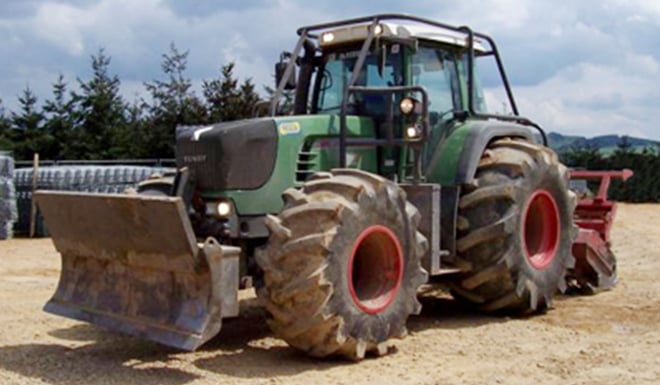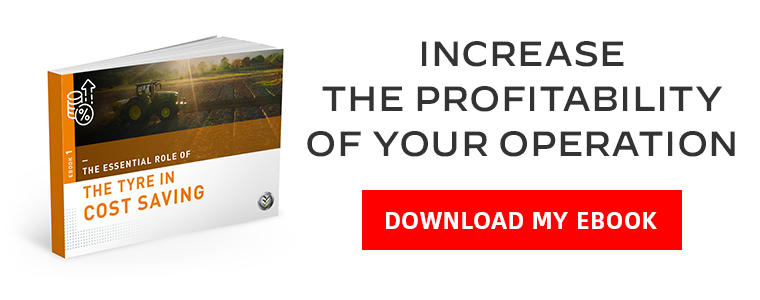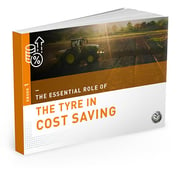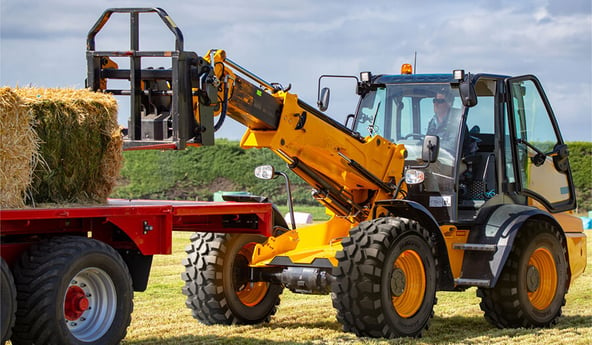What are the main differences between a standard farming tyre and a forestry tractor tyre?
This is the question that you need to ask when you decide to use your normal tractor for deforestation of your fields without replacing your standard tyres.
Using unsuitable equipment can cost you a lot of money, there’s a strong chance that your standard agricultural tyre will not resist for long in the unforgiving forest environment.
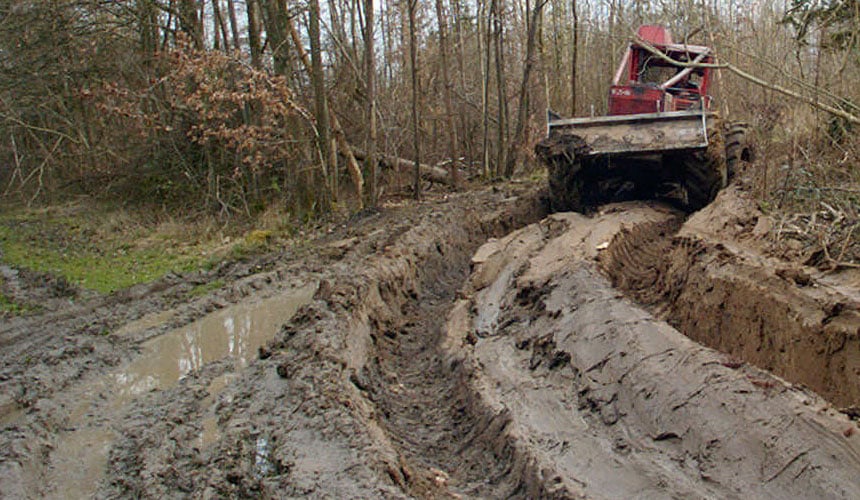 During forestry tasks, you have no control over the soil structure, nor over the types of debris on the ground, often hidden by a thick layer of decomposing vegetation. This is one of the reasons why you should differentiate between the equipment you use in the fields and for forestry work. You wouldn’t try ploughing with a harrow, so why would you do forestry work without adapting your tractor and mounting specifically designed equipment and forestry tyres to avoid damaging your standard tyres which are more flexible and more fragile.
During forestry tasks, you have no control over the soil structure, nor over the types of debris on the ground, often hidden by a thick layer of decomposing vegetation. This is one of the reasons why you should differentiate between the equipment you use in the fields and for forestry work. You wouldn’t try ploughing with a harrow, so why would you do forestry work without adapting your tractor and mounting specifically designed equipment and forestry tyres to avoid damaging your standard tyres which are more flexible and more fragile.
The standard agricultural tyre is designed for fields
If you have low pressure IF or VF technology tyres, you will almost certainly be aware that their characteristics are specific to the protection of your soil:
- Soil compaction is one of the primary concerns for crop growers and farmers. In terms of agronomics and soil preservation, VF tyres have it all worked out.
With a very flexible structure which can work with lower pressure, they limit soil compaction, provide an evenly spread tread contact and reduce spinning. - This type of farming tyre with its wide footprint is not at all suitable to forest work, which requires more tractive force than soil preservation.
Forestry tractor tyres are really adapted to the forest
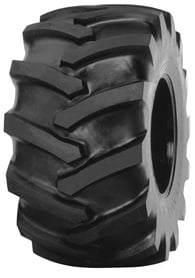 The forestry tyre must resist the difficulties of the terrain, it is a tyre with a stronger design reinforced by steel belts for increased resistance to piercing. Its highly resistant multi-layer textile structure is extremely long lasting and resistant to piercing.
The forestry tyre must resist the difficulties of the terrain, it is a tyre with a stronger design reinforced by steel belts for increased resistance to piercing. Its highly resistant multi-layer textile structure is extremely long lasting and resistant to piercing.
Gathering wood, deforestation or scarification of soil requires excellent tractive characteristics and grip. For this reason, the lugs on the treads must be as close as possible to 23° which corresponds to the optimal position for traction. Moreover, the casing and the tyre quality must allow the sidewalls to be resistant to stumps, sharp branches or pointed stones, and for the tread to be efficient it needs to have excellent self-cleaning properties.
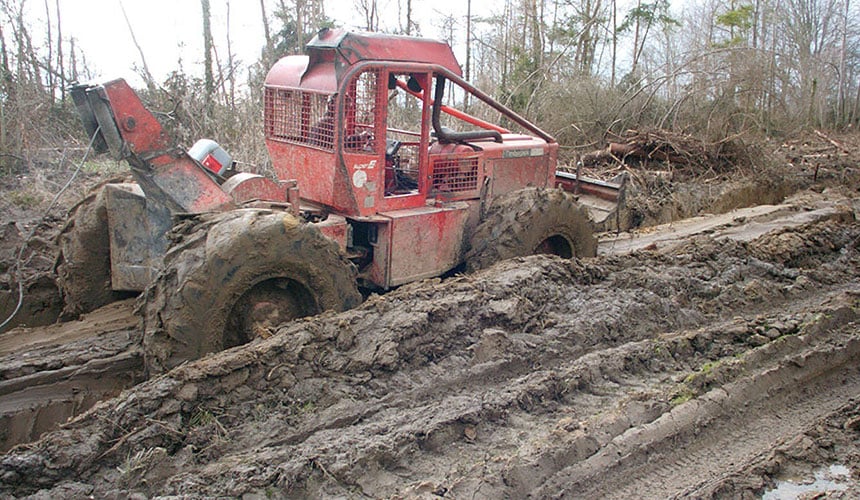
The FORESTRY tyre with a reinforced steel structure, rubber enriched crampons, its reinforced rim protector and its damp-proof nylon casing, provide the sidewalls with a capacity to resist cuts and knocks, largely superior to average.
+9% resistance
+20% of rubber between the casing and tyre tread
+20% of rubber on the sidewalls
This makes it an excellent choice for forestry tractors nd big forestry machinery used for deforestation or wood collection.
The Bridgestone-agriculture.eu blog is written and administered by tractor tyre experts who are available to provide you with the advice you need on the subject of your agricultural tyres. They allow you to maximise your productivity with information on all subjects linked to tyres: Cheap tractor tyres — Technical data for agricultural tyres — Air pressure advice — Solutions to avoid soil compaction — Sprayer tyre pressure — Why and how to ballast your tractor tyres — When to use dual wheels — The mechanical causes of abnormal wear — Cheap agricultural tyres – etc…
To learn more and boost your farm's profits, Bridgestone-Agriculture is offering you a free, detailed white paper that explains the essential role your agricultural tyres play in your productivity.
Most people who read this article have also read some of the following articles which are listed by order of popularity:
This information is intended only to make you aware of the technical and functional aspects of agricultural tires and their use. It does not allow you to make a judgment or a definitive conclusion on a given problem. Only your agricultural tire expert is able to make a technical assessment and take a final decision, case by case.
Leave a
commentary
Your email address will not be published.
Required fields are indicated with *


